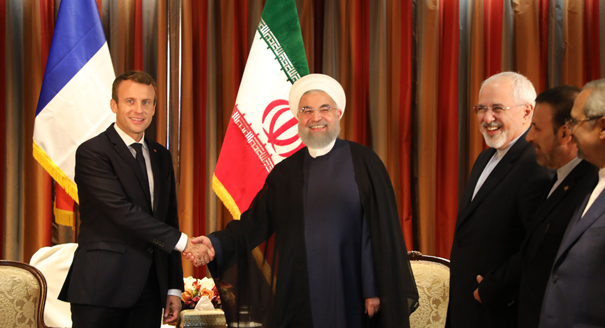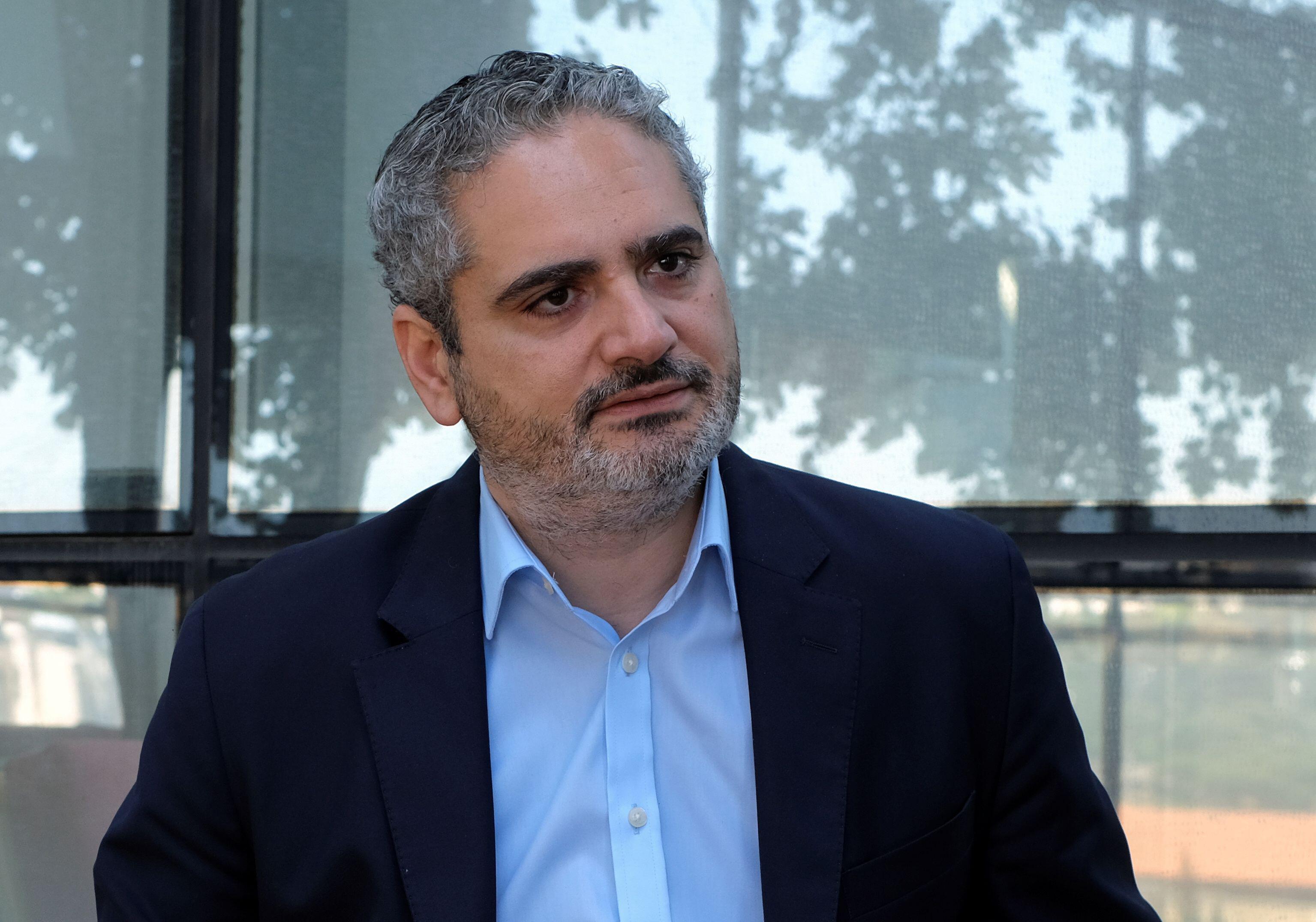A coalition of states is seeking to avert a U.S. attack, and Israel is in the forefront of their mind.
Michael Young
{
"authors": [
"Michael Young"
],
"type": "commentary",
"blog": "Diwan",
"centerAffiliationAll": "",
"centers": [
"Carnegie Endowment for International Peace",
"Malcolm H. Kerr Carnegie Middle East Center"
],
"collections": [
"Inquiring Minds"
],
"englishNewsletterAll": "",
"nonEnglishNewsletterAll": "",
"primaryCenter": "Malcolm H. Kerr Carnegie Middle East Center",
"programAffiliation": "",
"programs": [
"Middle East"
],
"projects": [],
"regions": [
"Iran",
"Middle East",
"Western Europe",
"Europe"
],
"topics": [
"Political Reform"
]
}
Source: Getty
A regular survey of experts on matters relating to Middle Eastern and North African politics and security.
Ellie Geranmayeh | Senior policy fellow at the European Council on Foreign Relations
Europe and Iran have vowed to begin intense negotiations to salvage the nuclear agreement with Iran. Europe is a key stakeholder and attempts to safeguard the deal are primarily linked to its strategic security concerns as well as preserving its sovereignty and global relevance in foreign policy.
In the coming months, the Trump administration plans to snap back and enforce U.S. secondary sanctions eased as part of the deal. The question is how aggressively the U.S. enforces these to obstruct European companies from doing business with Iran. In negotiations with the U.S., European countries hope to obtain exemptions and waivers for their companies.
But such exemptions are unlikely to be forthcoming. If the European Union’s 28 member states are willing, they can undertake political and legal pushback to minimize the harmful impact of secondary sanctions on European companies. Among other measures, the EU could revive its Blocking Regulation to incorporate U.S. secondary sanctions re-imposed on Iran; it could create an EU compensation fund through which European companies can redeem fines and penalties imposed by U.S. regulators for activities with Iran permitted under EU law; and it could provide powers to EU regulatory bodies to oversee and investigate the activities of the U.S. Treasury’s enforcement of secondary sanctions against European companies and their assets in U.S. jurisdiction.
If the measures taken by Europe provide enough guarantees for Tehran that its economic and security needs can be fulfilled, the deal may survive. While Europe may not be capable of salvaging the deal, it must attempt to do so and demonstrate its political willingness through actions that serve as a precedent for the international community. To do otherwise will have immediate and disastrous consequences in the Middle East and significantly reduce Europe’s relevance and influence on global security.
Richard Goldberg | Senior advisor at the Foundation for Defense of Democracies
What European diplomats say and what European businesses do are not the same thing. European leaders might claim to be committed to the nuclear deal with Iran, but no European bank, insurer, or business in its right mind will dare to cross U.S. sanctions. The risk of getting cut off from the U.S. banking system far outweighs any potential benefit of trade with Iran. Europeans need to remember that Iran remains the world’s leading state-sponsor of terror—responsible for a deadly terror attack on European soil in this decade. The United States, on the other hand, remains Europe’s most important military ally. We are open democracies; Iran is a repressive theocracy. Europeans might not like Donald Trump and they might disagree with this decision, but siding with a state-sponsor of terrorism over your most loyal strategic ally is wholly irresponsible.
David Gardner | Columnist for the Financial Times, living in Beirut, and author of Last Chance: The Middle East in the Balance(2009)
France, Germany, and the United Kingdom have said that they regard the United Nations Security Council resolution endorsing the nuclear deal with Iran in 2015 as legally binding and intend to stick to it. But U.S. President Donald Trump is threatening U.S. allies as well as adversaries with sanctions unless their companies cease doing business with Iran within six months. The European Union says it will act to protects its businesses.
Over 20 years ago the EU successfully resisted U.S. attempts to punish European businesses under the Iran and Libya Sanctions Act. That was under president Bill Clinton, but this is Trump. The threat of being shut out of the U.S. market and banking system through the extraterritorial reach of the U.S. Treasury will shut down most trade and investment. It will be hard for Europe to keep Tehran engaged and inside the nuclear deal unless it can offer the economic benefits Iran was supposed to receive in return for mothballing its nuclear program.
François d’Alançon | Foreign correspondent for the La Croix newspaper in Paris
“It’s tricky and unlikely to be completely successful, but possible,” as Carl Bildt, the former prime minister of Sweden, has said. European efforts must focus on how to keep Iran in the nuclear deal by ensuring that Tehran continues to comply with it, while enjoying some of the accord’s promised economic dividends. A nuclear deal without the United States requires a strong European political and economic commitment to resist the Trump administration’s imposition of secondary sanctions and engagement in a high-level dialogue with Iran. Strict coordination between European partners—especially, but not exclusively, France, the United Kingdom, and Germany—and extensive use of the European Union’s foreign policy and trade instruments is a prerequisite to success.
Europe should clearly tell the U.S. that a “new agreement” will not be negotiable without a commitment from the U.S. Treasury to minimize the effects of U.S. secondary sanctions on European companies that do business with Iran. In the absence of exemptions granted by Washington, the EU should compensate its businesses trading with Iran for any U.S. fines and develop a package, including revised European regulations, to block U.S. secondary sanctions. Provided Iran abstains from provocative actions, Europe should not rush to adopt new sanctions related to Iran’s missile program or its regional policy, or both, before engaging in a permanent dialogue with Teheran on those issues.
Jarrett Blanc | Senior fellow in the Geoeconomics and Strategy Program at the Carnegie Endowment for International Peace
The short answer is: maybe. With a string of meetings at the foreign minister level starting already, Iran, Europe, Russia, and China are clearly going to try. The bulk of the benefits Iran received under the nuclear deal relied upon the lifting of U.S. sanctions. With the United States out, Europe would need to make new—mainly economic—concessions to keep the deal worth Iran’s while.
That is possible. U.S. secondary sanctions are a strong tool, but they have never been tested against serious European governmental resolve. With resolve, some of the economic benefits of the deal can be preserved and others can be replaced. We would end up with a substantially modified version of the nuclear deal, but one that would presumably serve the core goal of constraining and inspecting Iran’s civil nuclear program.
This is not about economics for Europe. Iran is not an important enough market to risk friction in the trans-Atlantic relationship. If European countries decide to take risks, it will be because they believe that the nuclear deal is important to their national security and because they fear that Washington is no longer taking its allies’ interests seriously.
Carnegie does not take institutional positions on public policy issues; the views represented herein are those of the author(s) and do not necessarily reflect the views of Carnegie, its staff, or its trustees.
A coalition of states is seeking to avert a U.S. attack, and Israel is in the forefront of their mind.

Michael Young
The country’s leadership is increasingly uneasy about multiple challenges from the Levant to the South Caucasus.

Armenak Tokmajyan
In an interview, Shahla al-Kli discusses the country’s parliamentary elections and what they reveal.
Rayyan Al-Shawaf
Ankara may seek to annul a maritime deal with Cyprus and expand its influence in the next parliament.

Mohanad Hage Ali
Recent election results have placed Nouri al-Maliki in a strong position to name the next prime minister.
Wladimir van Wilgenburg